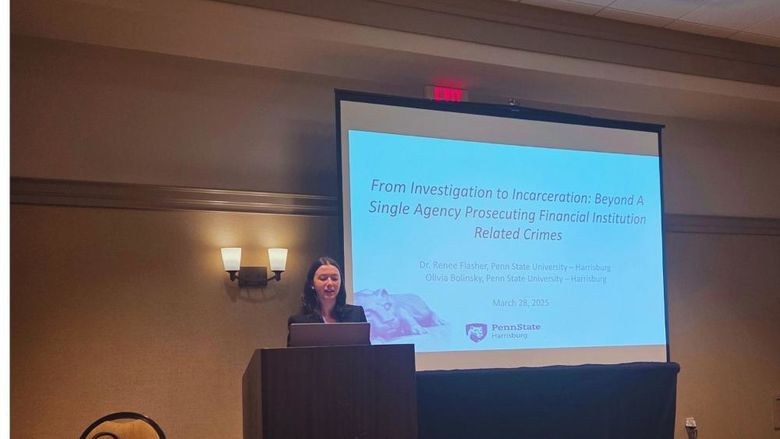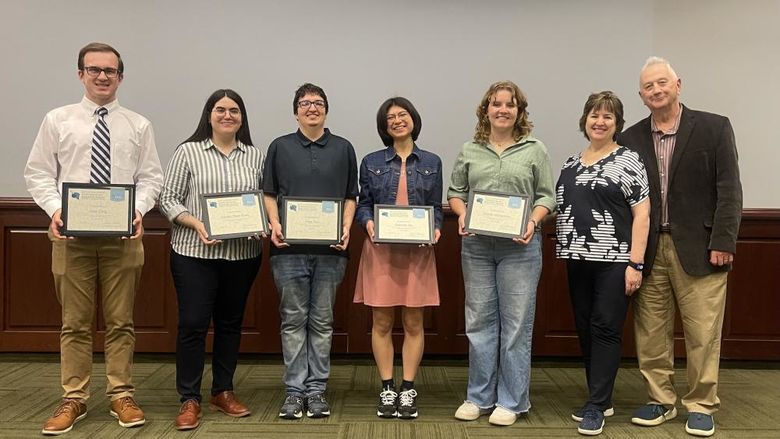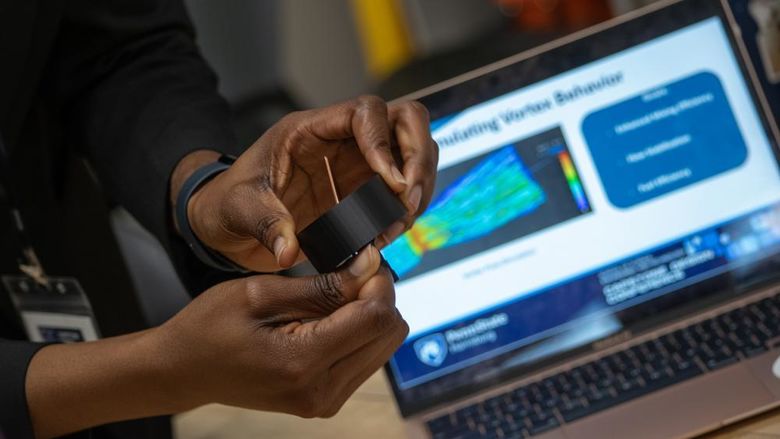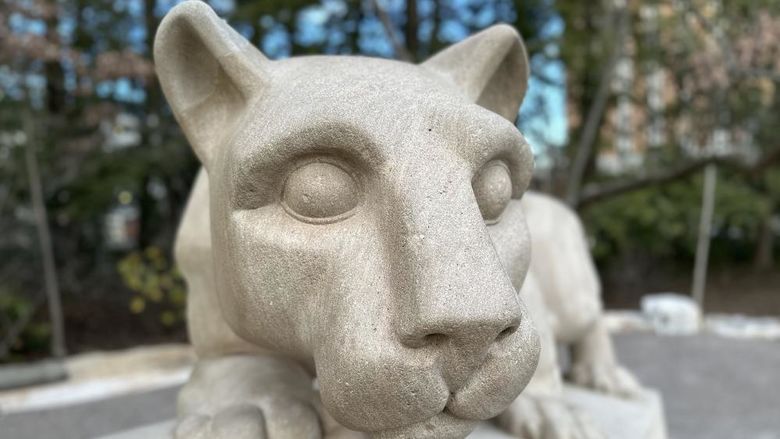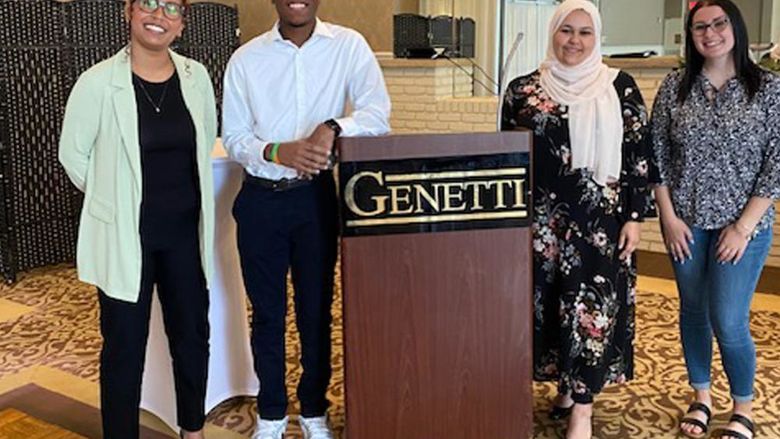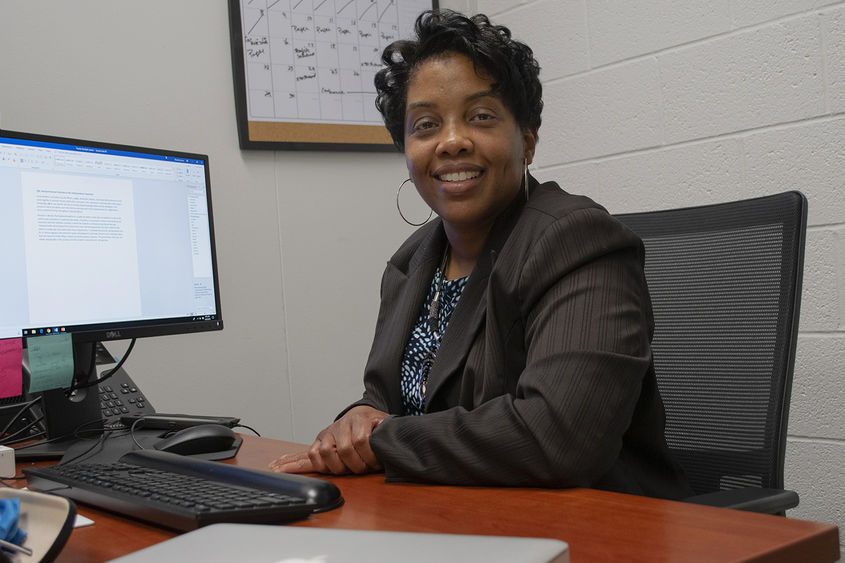
Dr. Shauntey James, assistant teaching professor of criminal justice at Penn State Harrisburg School of Public Affairs, encourages her World Campus students to take part in academic research. "Just because you're online doesn't mean you can't take advantage of university experiences," she says.
UNIVERSITY PARK, Pa. — Rachel Foster and Shannon Ryan collaborated for months on a research project about sexual violence and the #MeToo movement — but the two Penn State World Campus undergraduates didn’t meet in person until they presented their findings together at an academic conference.
Foster and Ryan were invited to present at the Northeastern Association of Criminal Justice Sciences conference in Williamsport, Pennsylvania, in June. This week they will present at the Midwest Criminal Justice Association conference in Chicago on “#Metoo, Interrupted; How Media Framing Affects Public Perceptions of Pervasive Sexual Violence.”
The chance to conduct research “opened up a lot of opportunities I didn’t know existed,” said Ryan, who is pursuing a dual degree in criminal justice and integrated social sciences. The project has been a high point of her Penn State career so far, she said.
Foster and Ryan received support to attend both conferences from Penn State World Campus Student Affairs, which provides funding for student engagement activities and co-curricular activities. The office also provided support that made it possible for five students to virtually co-present at a national conference for student-affairs professionals in March.
“Just because you’re online doesn’t mean you can’t take advantage of university experiences.”
—Shauntey James, assistant teaching professor of criminal justice, Penn State Harrisburg School of Public Affairs
World Campus Student Affairs Director Ashley Adams said her office strongly encourages and supports students participating in undergraduate research.
“Co-curricular learning opportunities like these — and others such as study abroad, alternative breaks, leadership and service programs — allow students to apply what they are learning in their courses to improve the world around them," she said.
Shauntey James, assistant teaching professor of criminal justice at the Penn State Harrisburg School of Public Affairs, supervised Foster and Ryan’s research, which she said demonstrated Penn State’s commitment to providing opportunities for undergraduates — including online learners — to carry out research.
“Just because you’re online doesn’t mean you can’t take advantage of university experiences,” James said.
Ryan and Foster got to know each other through discussion posts and video sessions while taking courses online with James. When James invited them to do research outside of class, “they jumped right on board,” James said.
“We all kind of recognized a similar passion,” Ryan said.
Over the summer, the two conducted their research into internalized misogyny and sexual assault — Ryan working from Philadelphia, and Foster from Nescopeck, Pennsylvania, 120 miles away. The two took part in regular Zoom video conversations with James.
Ryan and Foster said they cherished the opportunity to do research and make professional contacts in the criminal justice field while still undergraduates. There were only a few other students, and no other online students, at the Williamsport conference.
James “guided us through everything from the basics to understanding different aspects of research,” said Foster, who is studying criminal justice with a particular interest in immigration and civil rights law. “She’s really been a great mentor.”
James “has really gone out of her way for us,” Ryan said. “Even though we’re separated across the state, Dr. James has really been able to pull us together and collaborate.”
Ryan and Foster have also created the Society for Collegiate Social Science Researchers, a club aimed at encouraging undergraduates and faculty from all Penn State campuses to collaborate on research.
